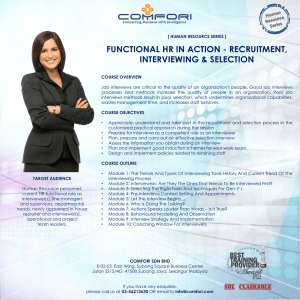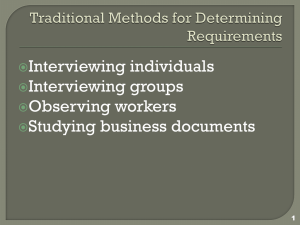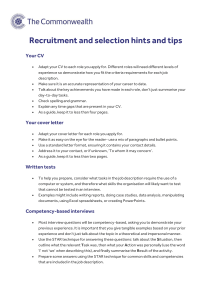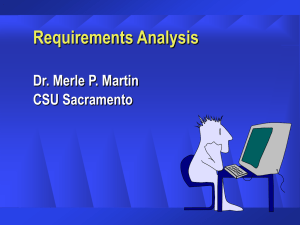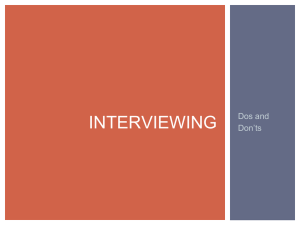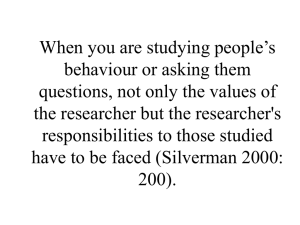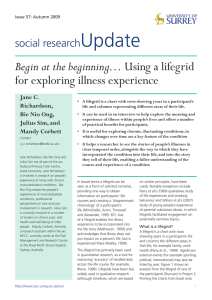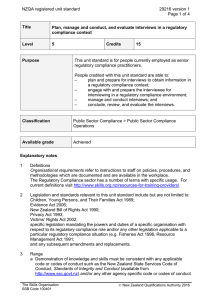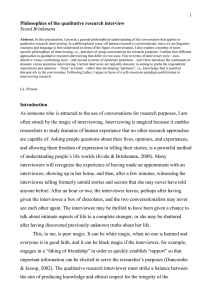GLC Reference Notes: Interviewing
advertisement
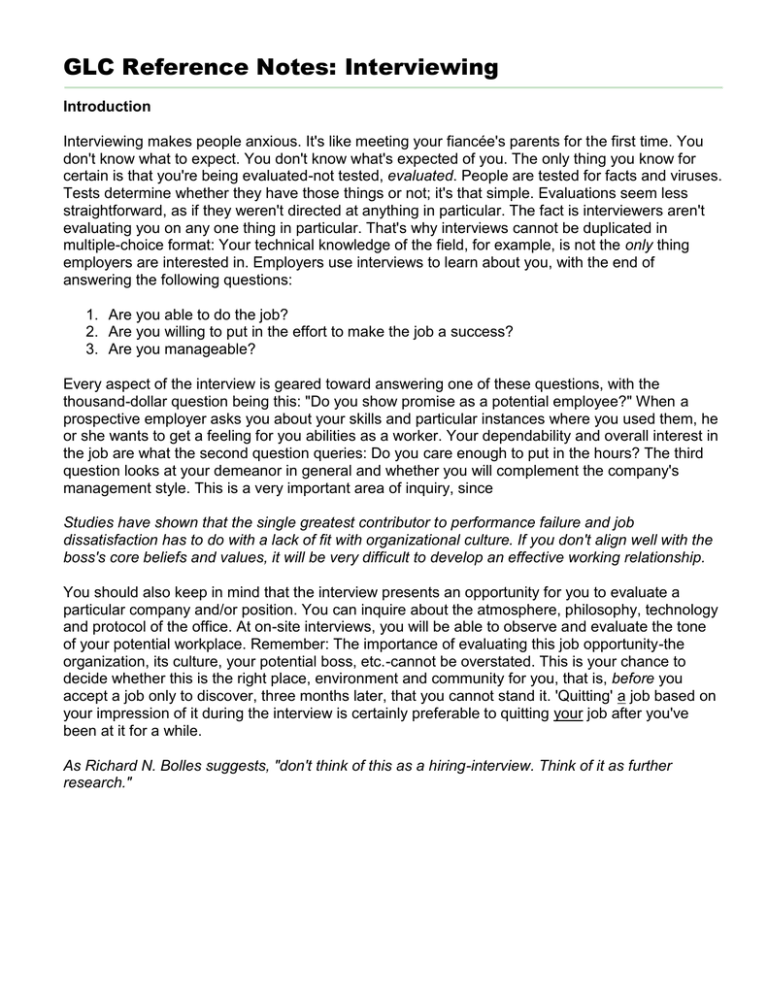
GLC Reference Notes: Interviewing Introduction Interviewing makes people anxious. It's like meeting your fiancée's parents for the first time. You don't know what to expect. You don't know what's expected of you. The only thing you know for certain is that you're being evaluated-not tested, evaluated. People are tested for facts and viruses. Tests determine whether they have those things or not; it's that simple. Evaluations seem less straightforward, as if they weren't directed at anything in particular. The fact is interviewers aren't evaluating you on any one thing in particular. That's why interviews cannot be duplicated in multiple-choice format: Your technical knowledge of the field, for example, is not the only thing employers are interested in. Employers use interviews to learn about you, with the end of answering the following questions: 1. Are you able to do the job? 2. Are you willing to put in the effort to make the job a success? 3. Are you manageable? Every aspect of the interview is geared toward answering one of these questions, with the thousand-dollar question being this: "Do you show promise as a potential employee?" When a prospective employer asks you about your skills and particular instances where you used them, he or she wants to get a feeling for you abilities as a worker. Your dependability and overall interest in the job are what the second question queries: Do you care enough to put in the hours? The third question looks at your demeanor in general and whether you will complement the company's management style. This is a very important area of inquiry, since Studies have shown that the single greatest contributor to performance failure and job dissatisfaction has to do with a lack of fit with organizational culture. If you don't align well with the boss's core beliefs and values, it will be very difficult to develop an effective working relationship. You should also keep in mind that the interview presents an opportunity for you to evaluate a particular company and/or position. You can inquire about the atmosphere, philosophy, technology and protocol of the office. At on-site interviews, you will be able to observe and evaluate the tone of your potential workplace. Remember: The importance of evaluating this job opportunity-the organization, its culture, your potential boss, etc.-cannot be overstated. This is your chance to decide whether this is the right place, environment and community for you, that is, before you accept a job only to discover, three months later, that you cannot stand it. 'Quitting' a job based on your impression of it during the interview is certainly preferable to quitting your job after you've been at it for a while. As Richard N. Bolles suggests, "don't think of this as a hiring-interview. Think of it as further research."

